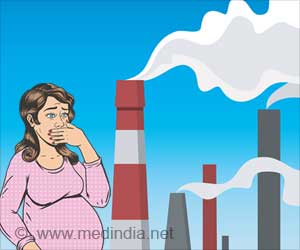Highlights:
- Exposure to external air pollution has been shown to cause faster aging of lung tissue, reduce lung function and increase the risk of developing the chronic obstructive pulmonary disease (COPD)
- COPD is a lifelong condition affecting lung function by narrowing the air passages and causing lung inflammation, making breathing difficult and severely reducing the quality of life.
- Right to clean air is a basic necessity and governments and citizens alike should do everything they can to improve and maintain the air quality in order to protect respiratory health particularly of children and the elderly who are at the highest risk
Read More..
Analyzing Effect of Outdoor Pollution On Lung Function
- The study analyzed data of over 300,000 persons enrolled in the UK Biobank study to determine whether exposure to external air pollution affected lung function and increased risk of development of COPD, especially as there is very little research regarding how air pollution influences lung function
- The team studied included various pollutants including particulate matter (PM10), fine particulate matter (PM2.5) and nitrogen dioxide (NO2), released by vehicle emissions, power plants, burning fossil fuels and industrial emissions
- The team measured the level of indoor pollution in the homes of the participants using validated methods
- The age, sex, body mass index (BMI), educational qualifications, smoking status, income from occupation and exposure to second-hand smoke of the participants were taken into account before the final analysis
- In addition, the research team checked if occupations linked to a higher risk of COPD influenced the outcome
- Study volunteers responded to detailed health questionnaires and their lung function was assessed by spirometry tests done by health professionals at the UK Biobank centers between 2006 and 2010 at the time of enrollment
- For each yearly average, increase in exposure by 5 mcg/cubic meter of indoor pollution, the accompanying loss of lung function was similar to that caused by two years of aging of lung tissue
- COPD prevalence was four times more in persons living in areas with PM2.5 levels above World Health Organization (WHO) guidelines for annual average exposure of 10 mcg/cubic meter (10 μg, than people exposed to second-hand smoke at home, and half of that compared to persons who were smokers
Professor Hansell explained: "In one of the largest analyses to date, we found that outdoor air pollution exposure is directly linked to lower lung function and increased COPD prevalence. We found that people exposed to higher levels of pollutants had lower lung function equivalent to at least a year of aging.”
Can Income Level Influence Impact of Exposure to Air Pollution?
Air pollution had a higher impact on persons from lower-income households. There was approximately twice as much impact on loss of lung function and threefold increased COPD risk on participants with lower income compared to higher-income participants exposed to the same level of pollutants.Authors said, "We accounted for participants' smoking status and if their occupation might affect lung health, and think this disparity could be related to poorer housing conditions or diet, worse access to healthcare or long-term effects of poverty affecting lung growth in childhood.”
Possible Study Limitations
- Inability to monitor exposure to pollutants in the daily lives of participants
- The fact that study participants were generally more well off and healthier compared to the general public, could have resulted in underestimations of the impact of air pollution exposure to reduced lung function
Future Plans
- Further research is needed to investigate the possible reasons for the difference in COPD in persons from lower vs higher-income households
- The team are involved in further studies to see if genetic factors and air pollution combined together might increase the risk of lung disease
References:
- Air pollution, lung function and COPD: Results from the population-based UK Biobank study - (http://dx.doi.org/10.1183/13993003.02140-2018)
Source-Medindia
















